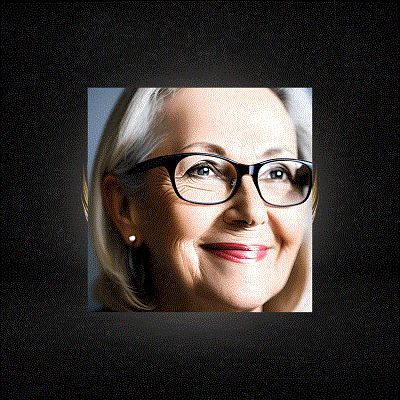Why Religion Still Plays A Major Role In Older Peoples Lives

As we journey through life, our perspectives and attitudes towards various aspects of life evolve.
One such aspect that often undergoes transformation is our relationship with religion, spirituality, and belief systems.
Numerous studies suggest that religion tends to hold more relevance for older adults than their younger counterparts.
This article delves into this intriguing phenomenon, analysing the reasons behind the increased religious inclination in older adults, and discussing the potential benefits and implications of this trend.
The Age-Religion Connection: A Global Phenomenon
The connection between ageing and increased religious inclination is not confined to a particular region or culture.
Recent surveys conducted by the Pew Research Centre across more than 100 countries and territories have highlighted this trend as a global phenomenon.
The surveys found that adults under 40 were less likely to report religion as ‘very important’ in their lives than older adults.
This pattern was common in various socio-economic contexts and in countries with different major religions, both highly religious societies and comparatively secular ones.
Biologically Induced Belief: The Fear of Mortality
One possible explanation for this increased religious inclination in older adults could be the biological changes associated with ageing.
As individuals grow older and approach the end of their life, they may become more concerned with existential questions about life and death.
Religion, with its doctrines about the afterlife and spiritual continuity, can provide solace and comfort in the face of such existential anxieties.
From this perspective, older adults may turn to religion as a means of mitigating their fear of mortality and finding a sense of hope and meaning in the face of the inevitable.
The Role of Social Isolation: Finding Community in Faith
Social isolation and loneliness are common issues faced by older adults.
As friends and family members pass away or move away, older adults may find themselves increasingly isolated.
This isolation can potentially be mitigated through participation in religious communities.
Regular attendance at religious services and involvement in religious activities can provide older adults with a sense of community and belonging, thereby alleviating feelings of loneliness and isolation.
Furthermore, religion can provide a structure and routine to their lives, which can be particularly helpful for those coping with retirement or the loss of a partner.
The Generation Effect: A Legacy of Religiosity
Another contributing factor to the increased religiosity in older adults could be generational differences.
Some researchers argue that each successive generation is becoming less religious due to the process of secularisation.
As religion becomes less intertwined with societal structures and daily life, younger generations may be less likely to identify with a particular religion or engage in religious practices.
In contrast, older generations, who grew up in an era when religion was more central to societal life, may continue to hold onto their religious beliefs and practices.
Religion in Health Care: A Source of Comfort and Coping
Interestingly, the intersection of religion and health care is another area where the significance of religion for older adults becomes evident.
Even though a large majority of older adults prefer to keep their health care and religious lives separate, many express a desire for their health care providers to help them find meaning or hope in the face of illness.
In fact, studies suggest that older adults who are very religious and use religious coping mechanisms are less likely to develop depression and anxiety and have a greater sense of psychological well-being than those who do not.
Additionally, religion can play a significant role in end-of-life care, providing comfort and a sense of peace to older adults facing terminal illnesses.
The Dark Side: Potential Drawbacks of Religion for Older Adults
While religion can provide numerous benefits for older adults, it is important to also consider potential drawbacks.
In some cases, religious devotion may lead to feelings of guilt, anxiety, or inflexibility.
Moreover, certain religious groups may discourage necessary medical treatments in favour of religious rituals, potentially putting the health of their members at risk.
It is important for health care providers to approach the topic of religion with sensitivity and respect, taking into account the individual beliefs and preferences of each patient.
The Cultural Variance: Different Strokes for Different Folks
While the trend of increased religiosity in older adults is widespread, there is considerable variance across different cultures and regions.
For instance, the age-related increase in religious commitment is particularly pronounced in Western cultures, Latin America, and Confucian countries.
However, in regions such as Southeast Asia, the Islamic world, and Africa, the age effect is less pronounced or even absent.
This highlights the complex interplay of cultural, societal, and individual factors that shape religious beliefs and practices in older adults.
The Multifaceted Role of Religion in the Lives of Older Adults
Religion holds a multifaceted and significant role in the lives of many of us older adults.
Whether it serves as a source of comfort in the face of mortality, a community in the midst of isolation, or a legacy passed down from a more religious era, religion can profoundly shape the experiences and perspectives of older adults.
As we continue to explore the intricacies of ageing, it is essential to consider the influence of religion, spirituality, and belief systems, and the ways in which they can contribute to positive ageing.
By doing so, we can better understand the unique experiences of older adults and work towards providing more holistic and empathetic care for this population.
Discover the growing popularity of static caravans among individuals over 50, reflecting changing lifestyle preferences and priorities. Explore the significance of religion in the lives of older adults in this insightful comparison on LifeOver50





